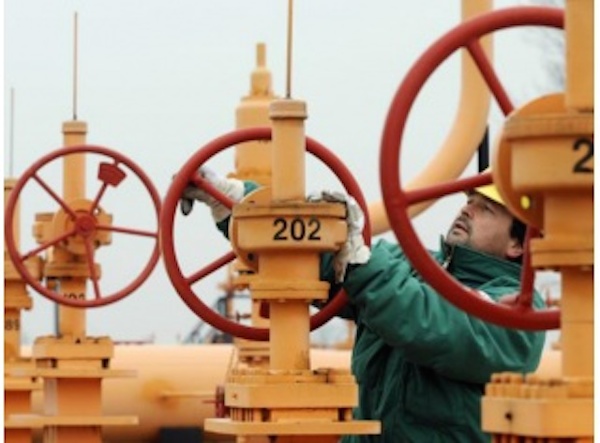
The Ukraine crisis has given new impetus to plans to build a gas terminal on the island of Krk, which Brussels has said it will help pay for.
Sven Milekic BIRN Zagreb
Croatian politicians have hailed an EU decision to support the construction of a liquefied natural gas, LNG, terminal on the Croatian island of Krk, which will eventually be connected with the LNG terminal on the Baltic in Poland.
The pipeline running north from the Adriatic to the Baltic Sea is designed to deliver gas for Croatia and the so-called Visegrad group of states in Central Europe: the Czech Republic, Hungary, Poland and Slovakia.
Construction of the terminal, planned for 2019, would cost about 630 million euro and have an annual regasification capacity of 4.0-6.0 billion cubic metres. The government is seeking a strategic partner or partners to finance and co-own the project.
Plans to build the pipeline have been given new impetus by the recent crisis caused by pro-Russian separatists in eastern Ukraine, which has heightened Europe’s determination to wean itself off from dependence on Russian energy.
On Tuesday, EU foreign ministers discussed imposing new, tougher sanctions on Russia, in connection with the downing of a Malaysian passenger jet in eastern Ukraine, killing everyone on board. The disaster is widely blamed on pro-Moscow rebels armed by Russia.
At the meeting, Britain led calls for existing sanctions to be enlarged to include an embargo on weapons sales to Russia – which France and some other countries were expected to resist, however.
At a regional summit held in Slovenia and Croatia last week, German Chancellor Angela Merkel voiced support for the proposed gas terminal on Krk, and told Croatian President Ivo Josipovic that the European Commission would co-finance the project.
The conclusion of the meeting was that, besides the Russian-led South Stream gas pipeline running through Bulgaria and Serbia, the EU would encourage and support the Trans-Adriatic Pipeline, TAP, and its Croatian corridor, the Ionian-Adriatic Pipeline, IAP to which the Krk terminal would be linked.
Both the IAP and TAP comply with EU energy policy, and the project for the LNG terminal on Krk is already included on the Commission’s common interest list.
Croatian Economy Minister Ivan Vrdoljak has described the project as one of strategic interest to Croatia. Under the Law on Strategic Investment Projects, the government can act quickly and expropriate the land intended for the construction of the terminal.
“We have the support of the Commission and we have positioned this project as crucial for securing the regional gas supply,” Vrdoljak said last week, adding that Zagreb will ask the Commission and the Connecting Europe Facility, CED, which funds such projects, to finance all the needed documentation and preparatory studies.
The US has also expressed interest in the construction of the terminal, in order to put its gas on the European market, starting with Visegrad states. This emerged at a meeting in Zagreb held on July 1 between Josipovic and the Deputy Assistant to the State Secretary for Energy, Amos Hochstein./balkaninsight/